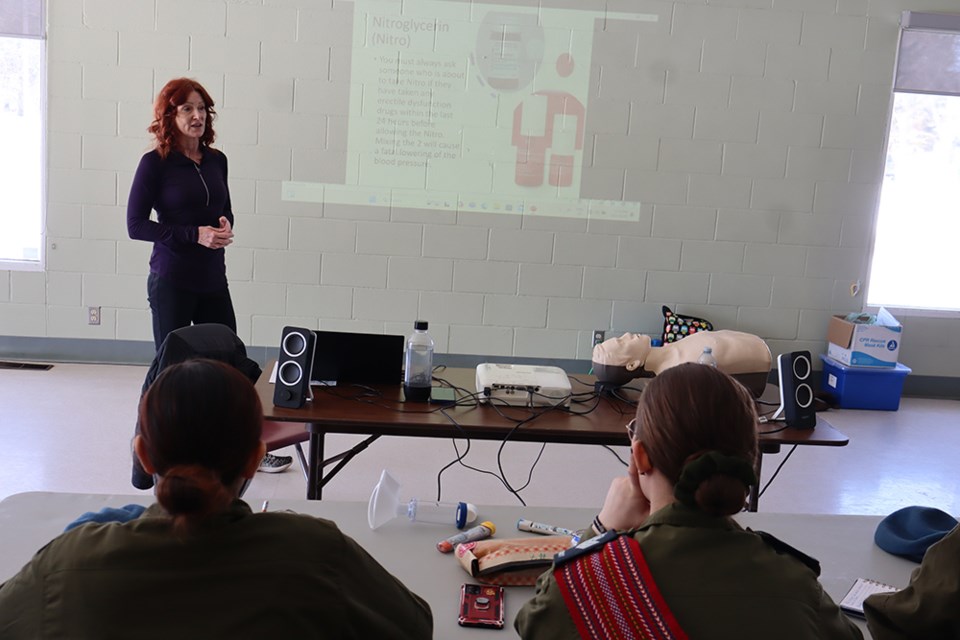CANORA - The Canora Air Cadets, led by Captain Darren Paul, commanding officer, received valuable training in first aid at the Canora Activity Centre on April 5 and 6.
Guest First Aid Instructor Tracy Jones provided information as well as opportunities for the cadets to get some hands-on practice.
They had the opportunity to practice CPR (cardiopulmonary resuscitation) on a CPR dummy. Other demonstrations included how to apply a tourniquet to stop blood flow, how to aid a choking victim, as well as administering epinephrine with an EpiPen in an emergency to treat a severe allergic reaction (anaphylaxis).
Jones provided a variety of useful first aid information to the cadets, including dealing with a stroke.
“Look for a sudden, severe headache,” she said. “There can also be dizziness and confusion. The patient may be unresponsive or have a temporary loss of responsiveness, possibly with sudden loss of bladder or bowel control.”
It’s important to ask the patient of they can raise their hands to the sky.
“If they’ve had a stroke, one arm will fall, or they may only be able to raise one or the other arm,” said Jones.
Another important area of emphasis was chest pain, which can indicate a range of conditions related to the heart, lungs or rib cage. For first aid providers, the most critical is the risk of a heart attack. A heart attack is usually caused by a blockage in one of the blood vessels supplying the heart muscle, resulting in damage to the heart. Prompt recognition and management of a heart attack can save lives. Delayed treatment increases the probability of complications such as sudden death or later heart failure.
“While waiting for EMS to arrive, consider having the person suspected of having a heart attack take a 150–300 mg aspirin,” said Jones. “If EMS is delayed, a bystander may get an automated external defibrillator and keep it close to the person in case it is needed.”
In the event of a severe injury or other event causing blood loss, cadets learned how to apply a tourniquet, which could save a life. If a person loses a lot of blood, their circulation system may fail and be unable to deliver enough oxygen. This can lead to shock and possibly death. Common causes of bleeding include road traffic collisions, machinery accidents, knife wounds and gunshot injuries. Internal bleeding, such as unseen bleeding into the chest or abdominal cavity, is also life-threatening.
The cadets also learned about choking, and how to open an airway that is partially or completely blocked by a foreign body, such as a piece of food or an object (a magnet or small toy). Choking is also referred to as a foreign body airway obstruction and is a common cause of breathing emergencies, especially in young children. Deaths related to choking underline the importance of preventive and first aid measures. It is one of the most common life-threatening emergencies seen by first aid providers. The technique used to help someone who is choking depends on the person’s age, size and level of responsiveness.
Don't count on social media to deliver your local news to you. Keep your news a touch away by bookmarking Canora Courier's homepage at this link.
Bookmark SASKTODAY.ca, Saskatchewan's home page, at this link.




